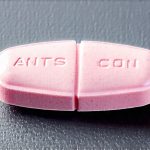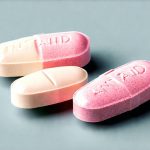The sensation of indigestion – that uncomfortable fullness, bloating, nausea, or even burning in the upper abdomen – is something most people experience at some point. Often, we instinctively reach for remedies like antacids or dietary changes, focusing on what we’ve eaten. But what if a seemingly harmless habit, like drinking plenty of water, could actually contribute to these digestive woes? It seems counterintuitive; after all, water is essential for life and generally considered beneficial for digestion. However, the relationship between hydration and indigestion isn’t always straightforward, and excessive fluid intake can sometimes exacerbate or even trigger uncomfortable symptoms in certain individuals. Understanding this nuanced connection requires a deeper look at how our digestive system functions and how water interacts with that process.
The assumption that more water always equals better digestion stems from its role in breaking down food and moving it through the digestive tract. Water softens stool, preventing constipation, and aids in nutrient absorption. However, the digestive system is a complex network, sensitive to volume and pressure changes. Overdoing hydration, particularly around mealtimes, can disrupt this delicate balance, potentially leading to discomfort for some. This isn’t about dehydration being preferable; it’s about finding the appropriate level of hydration that supports, rather than hinders, healthy digestion, recognizing that individual tolerance levels vary considerably. Are you drinking too much for your gut?
The Role of Gastric Emptying and Fluid Volume
Gastric emptying – the rate at which food leaves the stomach and enters the small intestine – is a crucial part of the digestive process. It’s carefully regulated to ensure optimal nutrient absorption. Excessive water intake, especially with or immediately after meals, can accelerate gastric emptying in some individuals. While this might seem beneficial, it doesn’t always translate to improved digestion. Rapidly moving food through the system reduces the time available for proper enzymatic breakdown and nutrient absorption. This can lead to symptoms resembling indigestion – bloating, gas, and a feeling of fullness even after eating relatively small amounts.
Furthermore, increasing fluid volume in the stomach dilutes digestive enzymes and acids. These are vital for breaking down food effectively. While dilution doesn’t necessarily eliminate their function, it can reduce their potency, making digestion less efficient. This is more pronounced when drinking large volumes of water during meals rather than between them. The stomach naturally expands to accommodate ingested food and fluids but excessively stretching the stomach walls can also trigger discomfort or even a feeling of fullness before adequate nutrition is obtained. Can too much water dilute digestive enzymes?
It’s important to note that everyone responds differently. Some individuals may experience no noticeable effects from drinking water with meals, while others are highly sensitive. Factors like overall hydration levels, the type of food consumed, and underlying digestive conditions all play a role in determining how fluid intake impacts gastric emptying and digestion. Individuals with conditions such as gastroparesis (delayed stomach emptying) might find carefully managed fluid intake helpful, but even then, it requires individualized guidance from a healthcare professional. Can drinking less water improve digestion?
Individual Sensitivities and Underlying Conditions
The connection between water intake and indigestion is often closely tied to individual sensitivities and pre-existing digestive conditions. Conditions like Irritable Bowel Syndrome (IBS), for example, can make individuals more susceptible to bloating and discomfort with changes in fluid volume. In IBS sufferers, even moderate increases in hydration may trigger symptoms because the gut’s motility is already compromised or hypersensitive. Similarly, people with functional dyspepsia – chronic indigestion without an identifiable organic cause – might find that drinking too much water exacerbates their symptoms due to increased gastric distension and altered visceral sensitivity.
Another factor is visceral hypersensitivity, a heightened awareness of normal digestive processes which can result in discomfort even from relatively minor changes within the gut. For individuals with this condition, the simple act of stomach expansion due to fluid intake can be perceived as painful or uncomfortable, leading to symptoms that mimic indigestion. This isn’t about an actual problem with digestion; it’s about how the brain interprets signals coming from the digestive system.
Finally, certain medications can influence how water affects digestion. For example, some medications slow down gastric emptying, and adding significant fluid volume on top of this could further disrupt the process. Identifying these individual sensitivities and underlying conditions is crucial for understanding whether excessive hydration contributes to indigestion and developing an appropriate strategy for managing symptoms. Can too much fiber irritate the gut?
Recognizing the Signs & Adjusting Intake
Recognizing that your water intake might be contributing to indigestion requires careful self-observation. Pay attention to when you experience digestive discomfort – specifically, after drinking water – and what quantity of water seems to trigger it. Here’s how to start:
1. Keep a food and fluid diary for a week or two, noting not just what you drink but also when and how much.
2. Track your symptoms alongside your intake, specifically focusing on bloating, fullness, nausea, or discomfort.
3. Experiment with reducing your water intake around mealtimes – try sipping water 30 minutes before or after eating instead of during the meal.
If you consistently notice a correlation between increased fluid intake and digestive distress, consider gradually reducing the amount of water you drink at once. Instead of gulping down large glasses, opt for smaller, more frequent sips throughout the day. This allows your body to process fluids more efficiently and reduces the likelihood of overwhelming your digestive system. Focus on hydration when you’re thirsty, rather than adhering to a rigid daily intake goal that might not be appropriate for your individual needs. Can drinking lemon water help with acid reflux?
Differentiating Water-Related Indigestion From Other Causes
It’s vital to differentiate between indigestion caused by excessive water intake and indigestion resulting from other factors. Many things can trigger digestive discomfort, including:
– Food intolerances (lactose, gluten, etc.)
– Spicy or fatty foods
– Stress and anxiety
– Underlying medical conditions (GERD, ulcers, gallbladder issues)
If your indigestion is persistent, severe, or accompanied by other concerning symptoms like weight loss, vomiting, or bloody stools, seek medical attention immediately. These could indicate a more serious underlying health issue that requires proper diagnosis and treatment. Don’t self-diagnose or rely solely on adjusting your water intake if you suspect something beyond simple indigestion is occurring.
A healthcare professional can help determine the root cause of your digestive issues and recommend an appropriate course of action. They may suggest diagnostic tests to rule out other conditions and provide personalized guidance on hydration strategies based on your individual needs and health status. Can drinking water dilute stomach acid?
Hydration Strategies for Sensitive Individuals
For individuals who find that water exacerbates their indigestion, there are several strategies they can employ:
– Sip fluids slowly: Avoid gulping down large amounts of water at once.
– Drink most of your daily fluid intake between meals rather than during them. Aim to finish drinking about 30-60 minutes before eating.
– Consider alternative hydration sources: Foods with high water content (cucumber, watermelon, soups) can contribute to your overall hydration without the same digestive impact as large volumes of water.
– Pay attention to temperature: Some people find that cold water triggers more digestive discomfort than room-temperature or slightly warm water.
– Explore herbal teas: Certain herbal teas, like peppermint or ginger tea, may aid digestion and soothe symptoms. However, be mindful of any potential interactions with medications.
Ultimately, the key is finding a balance between adequate hydration and comfortable digestion. It’s not about eliminating water entirely; it’s about tailoring your fluid intake to your individual needs and sensitivities and paying close attention to how your body responds. Staying attuned to your digestive system and making informed adjustments can significantly improve your comfort and well-being. Can too much fiber aggravate acid reflux?


















